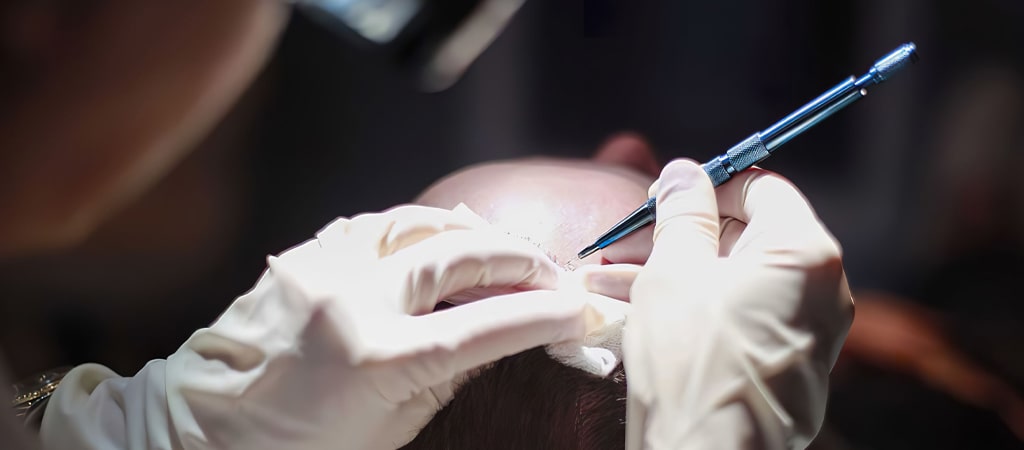What is Surgery for Diabetes?

Surgery for Diabetes, also known as Bariatric surgery, is a surgery operated on Type 2 diabetics. Diabetes can be the cause of genetics, unbalanced nutrition and an unhealthy lifestyle. There are three types of diabetes. Type 1, Type 2 and Gestational (diabetes in pregnancy). There is no insulin production in type 1 diabetes. People with type 2 diabetes can produce insulin, however, they cannot use it. Type 2 diabetic have high blood sugar levels that can cause organ damage over time. Surgery for Diabetes, or Metabolic Surgery may be an option for this particular disease. This surgery aims to ensure that the existing insulin can be used without any problems.
With diabetes surgery, insulin resistance in the body is eliminated. However, this surgery is only applied to patients with Type 2 diabetes. If the patient has Type 1 diabetes, the treatment is insulin. If patients with Type 2 diabetes face organ damage despite changing their lifestyle and trying all other treatment methods, surgical intervention becomes mandatory. After successful surgery, the blood sugar level of the patients will improve over time and return to normal.

Who Is Surgery For Diabetes Suitable For?
The surgery for diabetes is not suitable for all diabetes types. It can only be performed on Type 2 diabetes patients, as there is still production of insulin, even if it is in small amounts, in the body of Type 2 diabetics.
Certain tests must be conducted before considering an operation. Firstly, the Type 2 diabetics must be between the ages of 18-65. Research has shown that the patients under 40 and who have had diabetes for less than 8 years, have a higher success rate. Insulin levels in the pancreas are measured. The patient’s body mass index (BMI) must also be above 35, although some patients with a BMI over 30 may also be considered for the operation – This depends entirely on the preoperative tests and examinations and whether the patient is deemed suitable or not.
However, before surgery is considered other factors including lifestyle, diet and medication changes are reviewed. If and when these changes don’t show any positive results, surgery is then looked into. In addition to all these, other methods such as chan lifestyle, diet and medication use are tried before the decision is made for surgery. When non-surgical methods do not work, metabolic surgery is applied to the patient as a last resort.
How Is Surgery Performed?
Surgery for diabetes is becoming more popular with excellent success rates. The surgery is performed under general anesthesia. Four to six incisions are made in the abdomen area. 50% of the stomach is removed and the small intestines are re-positioned. This enables activity in the pancreas to increase, acting as a stimulus for insulin secretion. The patient is then taken for rest and will stay in hospital under observation. As the operation is a closed surgery, there should only be minimal pain post operation. Patients can expect to be back on their feet in a short amount of time.
Postoperative Recovery Process
A patient can expect to spend 24 hours in intensive care under observation after a surgery for diabetes procedure. Hospital stay can increase to 4-5 days depending on the patient’s condition. No food is allowed to be consumed except for protein supplements and water. The doctor will instruct for gastric protector medications to be used for the first month after the operation. In the second month, medication to protect the gallbladder will be given. All physical activities that require effort are prohibited for the first 3 months after the operation. Patients can expect to return to daily life after approximately 90 days. The diabetes should be completely cured after one year.
Benefits Of Surgery For Diabetes
Şeker hastalığı ameliyatı, başarıyla uygulandığı taktirde Tip 2 diyabet hastalarına birçok fayda sağlar. Bu faydalar şu şekilde sıralanabilir:
- Kan şekerinde büyük bir iyileşme meydana gelir. Hasta en geç 1 yılın ardından tamamen iyileşir.
- Yüksek tansiyon, uyku apnesi ve hiperlipidemi gibi metabolik bozuklukların iyileşmesine yardımcı olur.
- Diyabete bağlı olarak meydana gelen obezitenin giderilmesini ve hastanın sonraki süreçte kilo verebilmesini sağlar.
- Diyabet nedeniyle ortaya çıkan ruhsal ve fiziksel tüm rahatsızlıklar son bulur.
- Hastanın yaşam kalitesi fark edilebilir ölçüde artar.
- Ameliyat kapalı olarak gerçekleştirildiği için sonrasında ağrı meydana gelmez.
Günümüzde son teknoloji kullanılarak Tip 2 diyabet hastalarına uygulanan bu operasyon, yukarıda verilen avantajların elde edilmesini sağlayacaktır. Ayrıca ameliyat sonrasında hastalığın tamamen iyileşebilmesi için doktor tarafından verilen tavsiyelere uymak, ilaçları eksiksiz olarak kullanmak ve belirtilen tarihlerde düzenli olarak kontrole gitmek büyük önem arz eder.
Surgery for Diabetes FAQ’s
Does surgery guarantee a complete recovery?
Does surgery guarantee a complete recovery?
Research has shown that 89% of patients who underwent the surgery experienced a complete recovery. Furthermore, when compared to other treatment options, surgery has shown to have been the most effective solution. However, it should also be noted that the patient's health condition, age, weight, conditions and/other diseases do affect the success of the surgery.
What preparations are required before surgery?
What preparations are required before surgery?
Necessary medical tests and examinations are performed on the patient and the medical history is evaluated prior to surgery. During this period, the patient may be asked not to use certain medications and products including blood thinners, alcohol and smoking.
How long before a patient can return to normal life after surgery?
How long before a patient can return to normal life after surgery?
It takes about one month for the patient to return to daily life surgery. This varies depending on the patient's health, the success of the surgery and how well the patient follows doctors orders. Regular doctor visits must be made during the healing process also.
Heavy physical activities should also be avoided.
Are there any risks associated with diabetes mellitus surgery?
Are there any risks associated with diabetes mellitus surgery?
Like all surgical operations, surgery for diabetes carries some risks. However, risks are minimized with preoperative tests and regular controls.
How long does diabetes diabetes surgery take
How long does diabetes diabetes surgery take
The surgery alone can take anywhere between 4-5 hours. However this does not include the time for preoperative preparations and the time after the operation where the patient recovers. The time also depends on the patient's condition, the surgeons experience and how difficult the operation may be.





